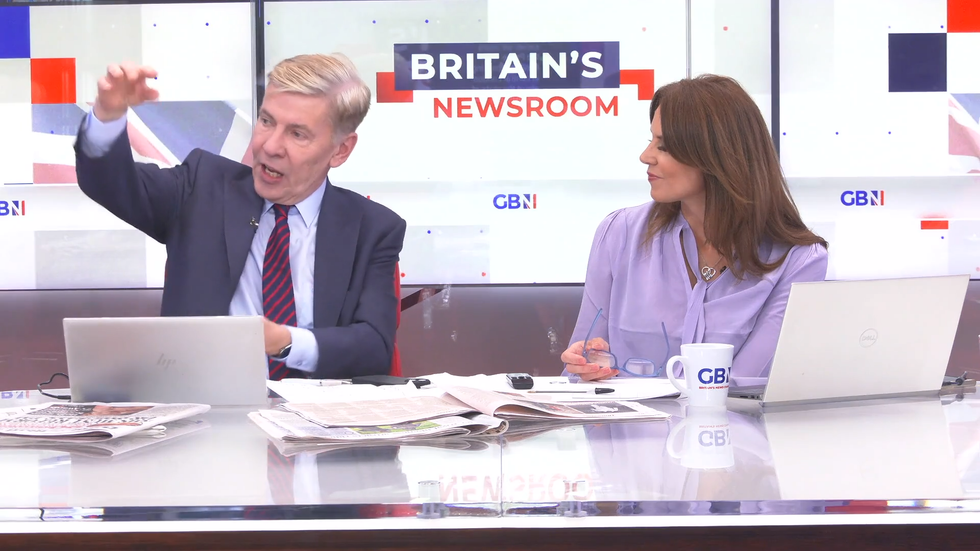Andrew Pierce was left fuming after being ejected from the conference
Don't Miss
Most Read
Latest
GB News host Andrew Pierce was thrown out of the TUC conference in Brighton before Angela Rayner's scheduled appearance, sparking controversy over Labour's relationship with unions.
Andrew arrived early for Rayner's appearance, but was promptly ejected by a union official who claimed it was a "private event", despite being advertised in the conference guide.
SUPPORT FEARLESS JOURNALISM: BECOME A GBN MEMBER TODAY
Rayner has close ties to union leaders, including Mick Whelan of Aslef, who recently negotiated a 15 per cent pay rise for train drivers.
Pierce speculated that Rayner's team was concerned about the optics of her appearing alongside Whelan amidst debates over pensioner benefits.

Andrew Pierce shared the shocking story on GB News
GB News
After intervention from TUC bosses, Pierce was allowed back in, only to learn Rayner was delayed in traffic. She ultimately skipped the event, heading straight to a private dinner with union leaders instead.
GB News co-hosts Bev Turner and Andrew Pierce commented on Labour's approach to media interactions at union events.
LATEST DEVELOPMENTS
Andrew remarked: "I have never, ever been thrown out of one. Even in the dark days of Jeremy Corbyn."
Bev criticised the party's media strategy saying that they "don't want a grilling."
She added: "it's just a kind of propaganda press. All it means is that they will always be in control."
"They're trying to control the narrative. But as we said it's not how it works. It's not how the system works. Don't censor who can ask you questions? Don't censor."

Andrew Pierce wanted to watch Angela Rayner's event
PAThe hosts' comments suggest a growing concern over Labour's attempts to manage media access and control messaging at union conferences, potentially limiting scrutiny of their policies and relationships with union leaders.
Angela Rayner's appearance at the TUC conference highlighted Labour's proposed "New Deal for Working People". This plan includes commitments to ban zero-hour contracts, make strikes easier, and introduce a four-day work week.
Labour's employment law plans also reveal intentions to significantly increase union power. This includes expanding "facility time" for union representatives across the public sector, allowing more time off from regular duties to handle union matters.
The proposals would grant union reps new statutory powers to enforce changes in working conditions and equality law. Additionally, private-sector companies bidding for public contracts may be required to hire union representatives.

Bev claimed that they "just don't want to be grilled"
GB News
Critics argue these policies amount to a "massive multi-million-pound bung to the unions", with concerns raised about the potential cost to taxpayers and impact on public services.
Labour's plans to increase facility time for union representatives have drawn criticism from Conservative circles.
The policy would reverse previous efforts to reduce union influence in the public sector.
Under the last Labour government, the Civil Service spent 0.26% of its annual pay bill on facility time, compared to 0.04% in the private sector. Current spending stands at 0.05%, or £97 million annually.
If implemented, Rayner's proposals could see costs rise to hundreds of millions extra per year for taxpayers.














